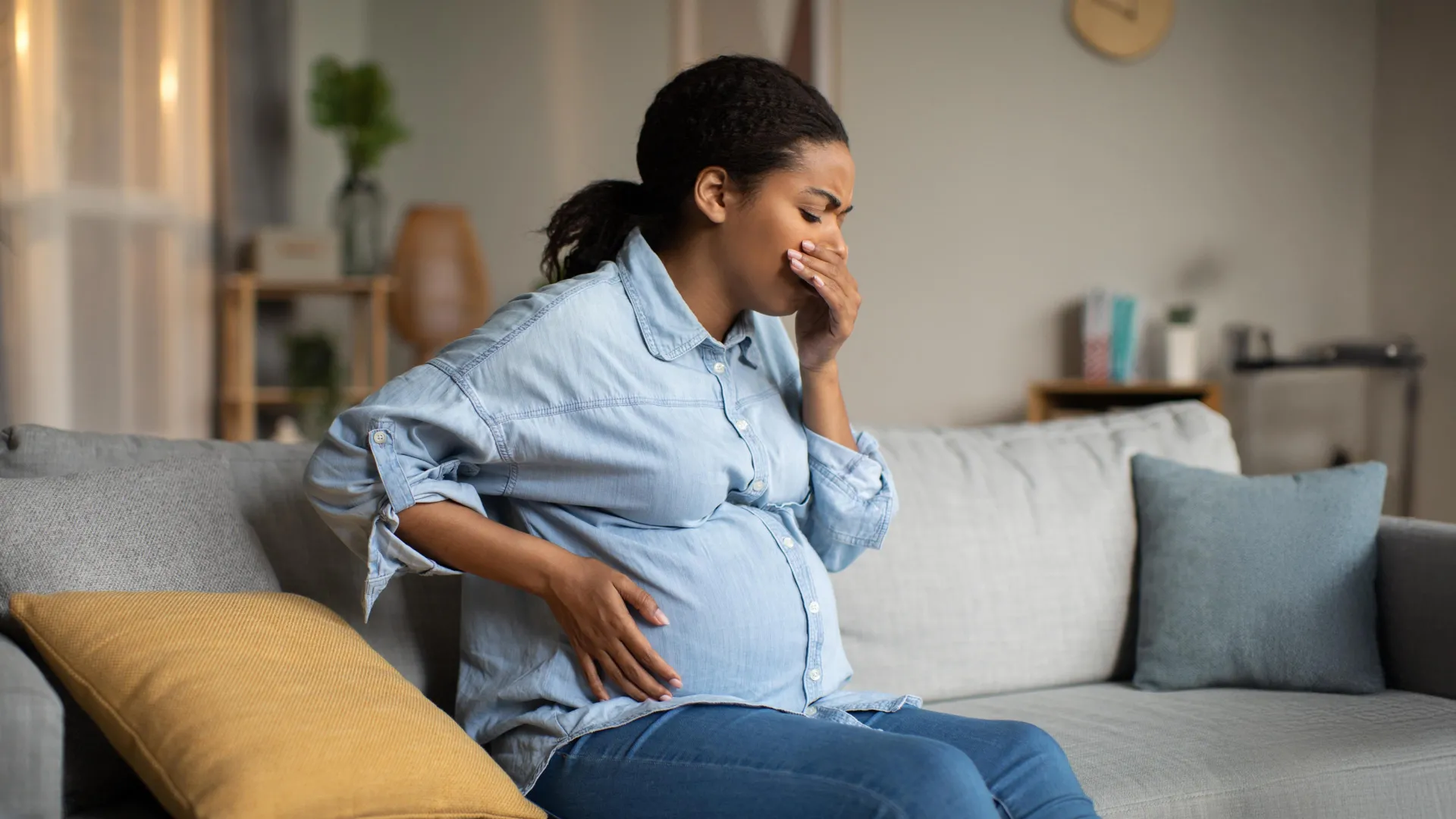The three days pregnancy sickness is most likely to start pinpointed
- Date:
- January 13, 2021
- Source:
- University of Warwick
- Summary:
- Warwick researchers discovered that pregnancy sickness strikes within a tight 3-day window, 8 to 10 days after ovulation, revealing it starts earlier than believed and is likely biological, not psychological. Their findings could finally help uncover the true cause of this widespread condition.
- Share:

Researchers from the University of Warwick have narrowed the time frame that nausea and vomiting during pregnancy will potentially start to just three days for most women, opening up the possibility for scientists to identify a biological cause for the condition.
By measuring the onset of symptoms from a woman's date of ovulation for the first time, rather than last menstrual period, they have demonstrated that symptoms start earlier in pregnancy than previously thought, and within a smaller time frame.
Nausea and vomiting in pregnancy, often referred to as pregnancy sickness, which usually ends by 12 -14 weeks of pregnancy is experienced by most women during pregnancy although some will experience it more severely, as in the case of hyperemesis gravidarm when the symptoms can continue throughout the pregnancy. The cause has historically often been seen as psychological but this latest study reinforces the view that the cause is biological and is linked to a specific developmental stage of pregnancy.
Researchers from Warwick Medical School and the Department of Statistics at the University of Warwick have drawn their conclusions from a unique dataset collected at the Clearblue Innovation Centre, by SPD Development Company Ltd. Their results, published in the journal BMC Pregnancy and Childbirth, identify a specific time period during pregnancy that could point scientists to an anatomical or biochemical cause for the condition.
The date of a woman's last menstrual period is commonly used to measure the start of pregnancy, but their date of ovulation is thought to be a more accurate starting point as menstrual cycles can vary greatly between individuals, and even between cycles for the same individual.
The researchers used data from daily symptom diaries kept by 256 pregnant women to compare the start of their nausea and vomiting symptoms to the date of their last menstrual period and date of ovulation, as determined by a urine test.
Using their date of ovulation as the start of pregnancy most women experienced the first symptoms of pregnancy sickness after 8 to 10 days, compared to 20 to 30 days if measured from their last menstrual period. This not only demonstrated that pregnancy sickness starts earlier than previous research has shown, but has also shown that using date of ovulation narrows the time frame that symptoms start to 3 days, compared to 11 days if last menstrual period is used.
Lead author Professor Roger Gadsby of Warwick Medical School said: "The precise course of pregnancy sickness is unknown, but this research shows that it occurs at a specific developmental stage, in a specific timeslot.
"For researchers it narrows our focus in terms of where we look for the cause. If we know that symptoms occur in a very narrow window 8-10 days after ovulation, researchers can concentrate their efforts on that particular stage of development to find the cause of the condition, both anatomically and biochemically.
"In the past, women suffering with nausea and vomiting in pregnancy have had their symptoms trivialised and overlooked because it was thought there was a psychological basis for the symptoms. This research further reinforces that nothing could be further from the truth, that this is a biological problem related to the development of the early fetus."
The research also found that 94% of women experienced symptoms of pregnancy sickness, a higher proportion than previous research that generally calculates the proportion as closer to 80%. This is likely to be because data was regularly collected from participants before they became pregnant up to 60 days after last menstrual period, while most other studies ask women to recall their symptoms after they have become pregnant.
Professor Roger Gadsby adds: "What we've shown is that more people get symptoms of pregnancy sickness than has ever been shown before, and one of the reasons for that is that this research has picked up mild early symptoms that tend to fade by 7-8 weeks. In other studies those symptoms would have faded by the time the research started."
Previous research by the same team has demonstrated that the term 'morning sickness' is misleading as nausea and vomiting can occur at any time of day, and argues that 'nausea and sickness in pregnancy' or 'pregnancy sickness' is more appropriate and avoids trivialising the condition.
Story Source:
Materials provided by University of Warwick. Note: Content may be edited for style and length.
Journal Reference:
- Roger Gadsby, Diana Ivanova, Emma Trevelyan, Jane L. Hutton, Sarah Johnson. The onset of nausea and vomiting of pregnancy: a prospective cohort study. BMC Pregnancy and Childbirth, 2021; 21 (1) DOI: 10.1186/s12884-020-03478-7
Cite This Page: